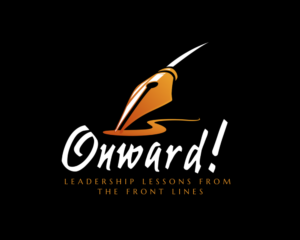It is often said in leadership circles that strong leaders never use the term “I.” Leadership is a team sport and any leader worth their salt knows that whatever is accomplished results from the efforts of a whole lot of other people. “We” signals team, togetherness, shared success and an outward focus. A 2015 Journal of Language and Social Psychology indicated a high correlation between leaders’ status and the use of “we” versus “I” pronouns. It indicates a focus on others, belonging, shared success, and an outward orientation by the leader. Lower-status and less confident leaders used “I” far more often.
But there is an important exception to this general rule. I got a reminder of this recently at a business conference. The CEO was giving an update on the business, a large complex business with multiple business units. Eventually, the discussion turned to a part of the business that was clearly suffering. The leader explained the business forces pushing against the business and walked through the steps the division leadership was taking to address them. There was a lot of “we” when they spoke of the business.
But as the talk shifted from presentation to discussion, a few of the questions from the audience were pointed. Many were involved in other business units and were concerned that this business unit was dragging down the larger business. I was more of a neutral observer, so I spent more time watching and observing the interaction. It was then I got a mini master class in leadership through adversity.
As the questions got more pointed, the CEO’s language shifted. They stopped using “we” and started using “I.” This was particularly true when answering several difficult decisions regarding how the performance of the struggling unit might impact other business units. They were good about answering the questions but after the third “It was a difficult call, but I made it.” It was as if, when the arrows were flying, this leader stood up, put the target squarely on her own chest and said, “Shoot me first.” At one point, they simply said, “It was a tough call, but I made it.” They then paused for a few seconds and looked around the room ready for the next challenging question, not in a threatening way but in a calm, assertive way that oozed strength and resolve. None of us did.
They then shifted gears, talking about the bright future of the business unit. More importantly, they took the time to specifically praise the leadership team of the business. They explained what they were doing and why they believed the business was fundamentally sound and had the right leadership team. In her mind, it was clear the challenges were market driven and not leadership driven.
At the end of the day, two things were clear: If you wanted to attack that part of the business, you were going to have to fight her, and the leadership team had their full support.
My first reaction to the conversation was – besides thinking Thank the Lord I’m not in that business right now, was – I’d follow her. The image that came to my mind was that of a Shield Maiden.
I love shows about Vikings. I’m a sucker for action and the combination of wilderness, action, and crossing oceans in open wooden boats sucks me right in. A recent Vikings series on Netflix involved a group of Viking warriors called Shield Maidens, a group of women tasked with defending the nobles. The heroine of the series trained to become one and spent a fair amount of time kicking butt. She was badass.
Like a Viking Shield Maiden, this CEO defended her team well and, in doing so, taught a mini master class about how to handle the situation when one part of your business is struggling.
Because here’s the thing. Doing what this leader did sounds easy. It is easy to talk about the theory of leadership or write about it in a blog. But when times are tough, and you’re out in front of a group of people unhappy with part of the business you’re running, every instinct in your body wants to shift the blame. It is far too easy. I’ve done it…more often than I’d like to admit. It was inspiring to watch someone do it in person and do it so well. No bravado. No bullshit. Straight facts, assessment, and accountability.
What are the leadership lessons?
- Language matters. There is an old adage, “The book of success has many authors. The book of failure, one.” is often used to imply people will look for one person to blame. But the leader knows that in public, this is in fact the case. “We” is the right answer when talking about the business and about successes. But when the challenges arise, the right answer is “I.” The leader shares the success and stands alone in taking public responsibility. I’m guessing there have been plenty of difficult conversations internally, but the point is that I’m only guessing. Those are behind closed doors, where real coaching and growth can happen.
- Supporting Leadership Matters…if you truly have the confidence. Publicly supporting your leadership team in the face of perceived underperformance carries risk. I’ve been in a similar situation where a business was suffering dramatically because they had the wrong leadership in place and the whole world knew it. The leader then stood up in front of everyone to talk of “progress” while repeatedly praising his team for their incredible skill. It was quickly apparent to everyone in the room that the problem was not only with the lower-level leadership but at the top. He was out less than six months later. The lesson: It’s amazing to support your people but only if you’re truly confident in their abilities to fix the issues.
- Taking Responsibility Is a Sign of Strength. It is too easy to want to shift the blame to get yourself out of the short-term discomfort. But when you do anything other than accept responsibility for the performance of people who work under you, you really undermine your own credibility and authority. Because if you’re really in charge, you own their performance, good and bad.
None of this is revolutionary. Indeed, many of these lessons we all “know” in the sense that we’ve heard them before. But watching them in action recently when the stakes were high was inspiring. It is difficult to do and it’s great to watch when it’s done well.
Onward!
Jeff





